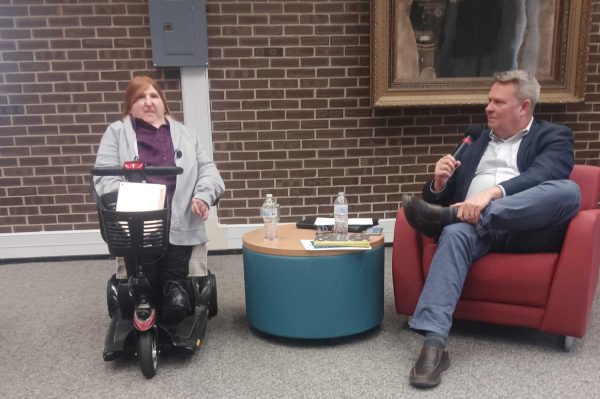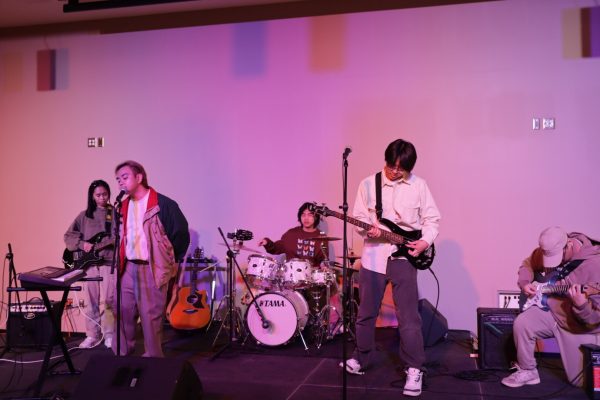My Chemical Romance
October 31, 2006
In 2004, New Jersey’s My Chemical Romance released its sophomore album. “Three Cheers For Sweet Revenge” went platinum and sent youngsters to cosmetic counters.
The dark quartet has released a 13-track album in support of a slight image change. Now everyone can join or ignore the movement know as “The Black Parade.”
In the midst of past hits, “I’m Not Okay (I Promise)” and “Helena,” new songs serve as a departure from standard instrumentation and a discovery of the art form known as music. The sound revolves around singer Gerard Way’s manipulation of dramatic themes for 52 minutes. The topics of cancer, death, parents and teenager rebellion serve as inspiration for the pairing sounds created by the rest of the band.
With the exploration of rockabilly, swing and polka styles, a greater musicianship is heard. Ray Toro’s screaming guitar substantially praises the riffing of ’70s guitarists. Solos fill up empty space and lengthen several songs. Diversifying the bands options of song writing has left “The Black Parade” in search of a steady drill sergeant.
Opening track “The End” flows smoothly into “Dead” and sounds as if it is a two movement piece. The excitement generated by the first four songs of the album disperses quickly when the slow-starting piano-based single, “Welcome to the Black Parade,” causes a temporary shift in tempo. Once the dud passes, the parade marches on with some high and low points.
Way’s most blatant cry for love is exposed in “I Don’t Love You.” The singer gargles out, “When you go/ Would you have the guts to say/ I don’t love you/ Like I loved you.”
“Mama” is a homage to the rhythm-driven folk music of Eastern Europe.
Halloween and My Chemical Romance are commercialized for the purpose of stirring up laughs. But this album is okay.









